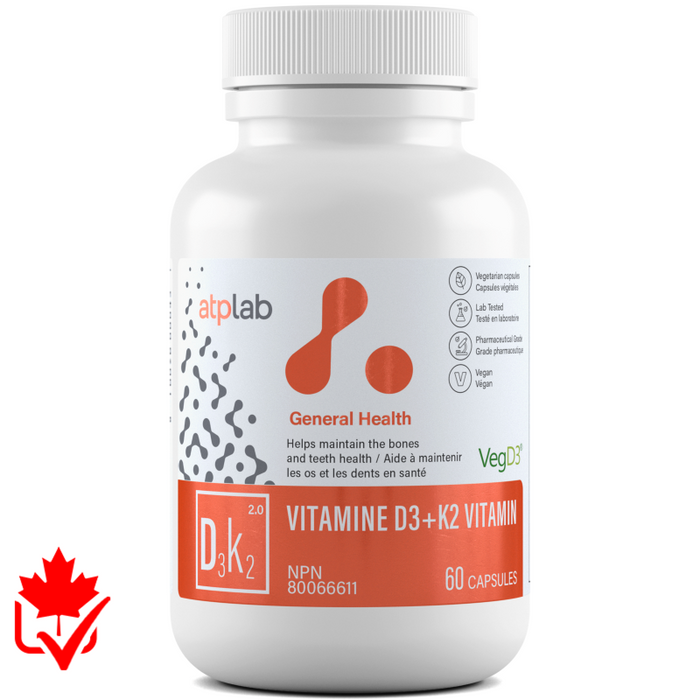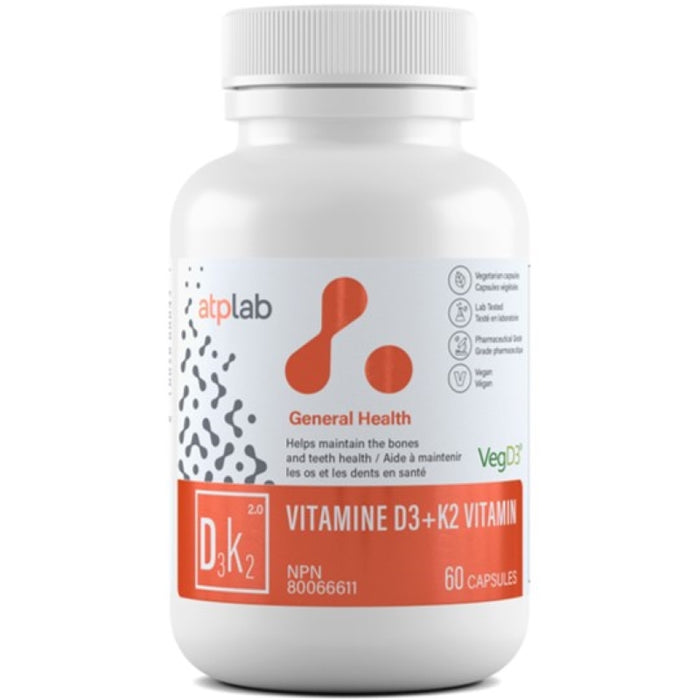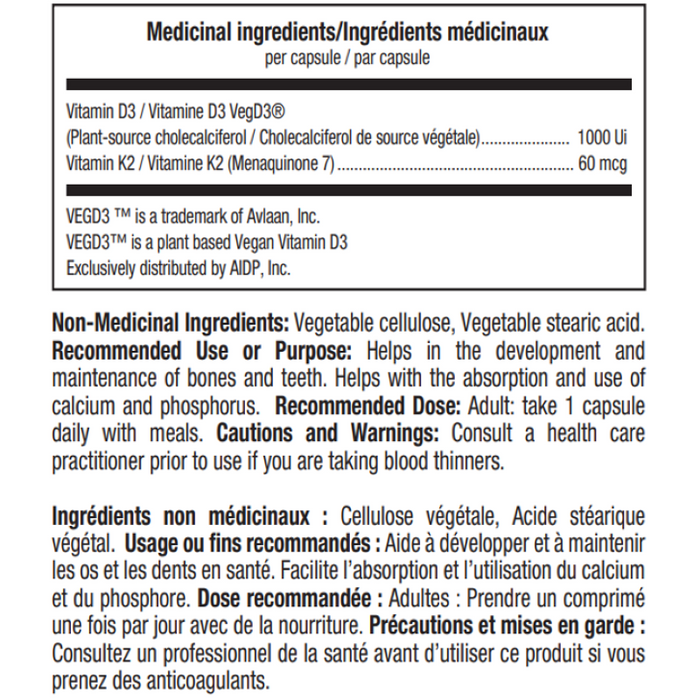
Benefits
70-97% of Canadians have insufficient levels of vitamin D3. This is partially because it’s virtually impossible to synthesize vitamin D from the sun during the winter.
Vitamin K2 works synergistically with D3 because it works to deposit calcium (which D3 “elevates”) into our bones. This makes D3K2 a potent combination for immune function as well as healthy aging.
Features & Who It’s For:
- People omitting K2 rich food sources from diet or those at risk for osteoporosis
- 100% vegan formulation
- Calcium does not work without D3 and K2
- The most bioavailable and useable form of vitamin K (K2 MK7)
- Manufactured in a cGMP and Informed Choice Certified lab




